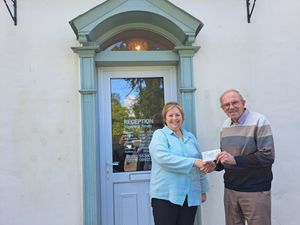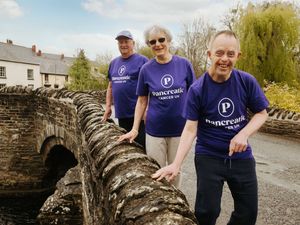We have to raise £10 million a year to keep Severn Hospice afloat - here's how we do it
Tracie Harrison admits the responsibility can be a little daunting.
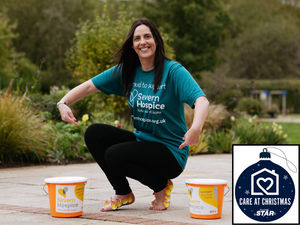
At the start of each financial year, she begins with nothing. And it falls to her to generate £9 million, maybe £10 million, or even £11 million to keep Severn Hospice running for another year.
"This year it was £10.8 million, but it goes up every single year," says Tracie, who has spent the past three years as head of income generation at the Shropshire-based charity.
On the plus side, she does have a few tools at her disposal, which can usually be relied on to help her meet the target. One of the biggest of these is the charity's chain of 32 shops, 28 across the county, and a further four in Mid Wales. Between them, these bring in £4.5 million of much-needed funds. The hospice lottery brings in a further £1 million a year. And donations left in people's wills can usually be relied on to bring in another couple of million.
That still leaves Tracie with between £3 million and £5 million to find each year, a situation not helped by the recent Budget.
"If the government does press ahead in April 2025 with the increase in National Insurance, that will cost the hospice an extra £500,000 more. That's a big increase on top of what we already have to find."

Faced with such challenges, it is just as well that Severn Hospice has a loyal following in the county, and a loyal band of supporters willing to raise funds.
"We're always optimistic that all our supporters will help us raise the funds we need, but it is daunting when you start with zero every April," she says.
"We have our community supporters, people who do things on their own, organising charity balls and things like that, and we will help them make sure they do everything right. Those people may have been touched by the hospice in some way.
"Then there are the people who raise money for us because we have a good reputation, and they know that if they raise a pound, it will be spent wisely.
"There are also the people who work for companies, and think the hospice will be a good place to put their money, and once they start doing that, they take more of an interest in what we do and find they want to become more involved."
Then there is the occasional windfall.
"We usually get about £2 million a year from legacies, where people have left money in their wills, but sometimes we will get one that will make a significant difference.
"That happened this year when we were facing a deficit, but a legacy came in that significantly reduced that. Now we are on course to raise enough money to cover that deficit.
"The problem is that while that can solve an immediate difficulty, it doesn't last long, and we still have to find other ways of bringing the money in."
Another crucial income stream is from people who make regular monthly donations, something Tracie says is crucial to the hospice's financial security.
"If £5 a month goes out of their bank account, that provides us with a stable income stream we can rely on," she says.
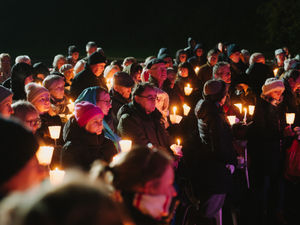
A recent Christmas raffle has brought in £10,000, Tracie adds, while 4,000 children will soon take part in the 'Rudolph Relay' which will see them run one mile each while wearing reindeer antlers. The Lights of Love event, where people remember loved ones by lighting up a Christmas tree, is also an important source of income.
Despite the well-publicised troubles on the high street, Tracie says the hospice's charity shops have proved somewhat resilient, and continue to perform well.
"I would say that, after Covid, charity shops in general did see a big increase in trade," she says.
"People wanted to be out and about, and we did a bit more trade than we might have expected."
Concerns about the environment, as well as a need to save money, have also made shopping at charity shops more popular, she believes.
"Many of our customers shop with us because they need to, people are being more careful about how they spend their money, and there are others who do so because they are concerned about the environment, and they see it as more sustainable to buy second-hand."
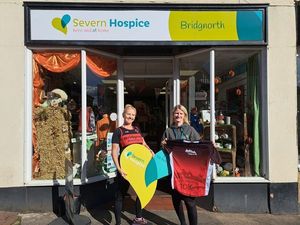
As well as being crucial to the fundraising effort, Tracie says the network of charity shops, across the length and breadth of Shropshire and Mid Wales, play a crucial role in reminding people about the hospice's work.
Does it ever become difficult, thinking up new ways to generate income?
"We have a saying that there is nothing new in fundraising, but there are always new twists we can give to old ideas," says Tracie.
"There is nothing new about a run for kids, but by the children wearing antlers, and calling it the Rudolph Run, we give it a fresh twist."
To learn more about how you can support Severn Hospice's work, visit severnhospice.org.uk/support-us or call 01743 236565.


